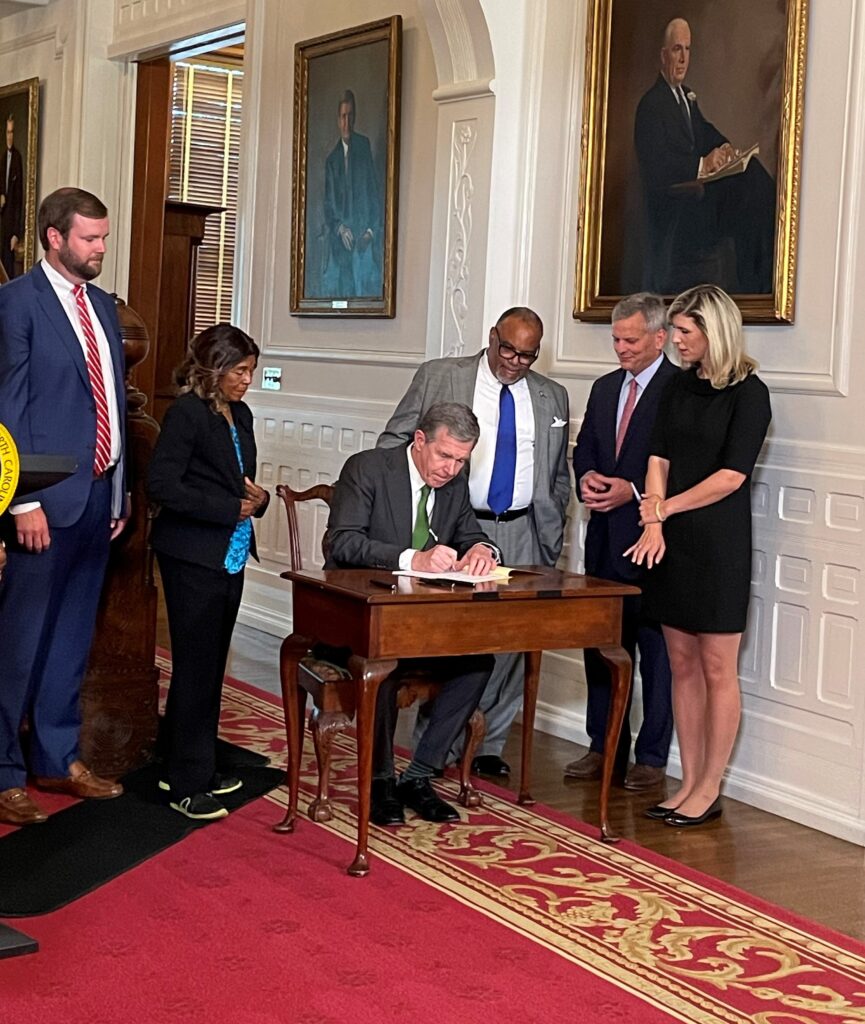Bulletin Search
Caught Off Guard – What You Should Do
Have you ever shown a property and walked into an unexpected situation? Many brokers have no idea how they might respond in an emergency until they are faced with one. This article is designed to help you consider scenarios that could occur and be prepared in advance with a proper response. What would you do if you discovered smoke? What about a burst pipe where water could potentially flood throughout the house? In these situations it is likely that you would call for help immediately, whether 911 or the listing agent/property owner or someone who could address the issue. But what would you do if you encountered a person in the property, legally or not, who may be in some sort of distress? Would you leave and go to the next property? Would you call for help, or attempt to notify the listing agent or owner?
Discovering People in Unknown Condition/Situations
There have been many instances of licensees entering properties for business purposes and unexpectedly discovering someone is there. Some situations are simple mistakes, confused timing of showings, forgotten appointments. Others are more alarming, like someone who has broken into a vacant home and is living there. What if you encounter someone who is unresponsive, and you are not clear about if they are in distress or not?
Action you can take:
- If someone appears to be unresponsive, and you are not trained to render aid, a call to 911 or local police could allow the person to receive assistance from someone who is. If you are uncomfortable or alarmed, exit the property and get to safety, then call for assistance.
- If you are unsure whether a situation warrants a call to police or emergency responders, the safest course is to call 911, tell them the facts, and let them assess whether an official response is warranted. In addition, call your Broker-In-Charge or another trusted advisor and share the scenario with them to get an opinion of any other action that might be warranted.
- You should always immediately notify the listing agent of your experience and allow them to follow up as needed with their client or local authorities.
Discovering Property in Danger
If you enter a property and discover a situation damaging/affecting the property, like a fire or flood, remember that you have a duty to protect the seller’s property while showing it. It is not advisable to walk away and do nothing. At a minimum a broker must take reasonable steps to contact the listing agent or owner and report the issue. Is there an affirmative duty to also contact emergency services? Not specifically by law, but an agent’s duty to safeguard and protect the property may require you to do so.
Action you can take:
- If you discover an imminently dangerous condition, get yourself/clients to safety first.
- Once safe, call 911 if a situation such as a fire exists, that could cause harm to property or others.
- If not a significantly dangerous situation, contact the listing agent or property owner, and/or authorities that can address the concern appropriately.
- Notify your BIC and record a note for your records of the event and your actions in the file, in the case that questions come up later about what happened or about action you took.
Liability Concerns of Brokers
Brokers often express concern that if they encounter a person in distress, they don’t have the proper training or duty to render aid, or that they might be liable under North Carolina law. In fact, North Carolina law provides in NCGS § 90-21.14 that any person who renders first aid or emergency treatment to a person who is unconscious, ill, or injured, and receives no compensation for that assistance, “shall not be liable for damages for injuries alleged to have been sustained by the person or for damages for the death of the person alleged to have occurred by reason of an act or omission in the rendering of the treatment unless it is established that the injuries were or the death was caused by gross negligence, wanton conduct, or intentional wrongdoing on the part of the person rendering the treatment.”
Other Considerations/Actions:
- It is never a good idea to make social media posts about situations where you found someone in any sort of distress.
- If you are alarmed or in distress yourself, get to a place of safety and call for help.
- If you discover someone deceased in a property, call the police immediately; likewise, if you discover someone unconscious or in apparent medical distress, call 911.
- 4. If you discover an animal deceased in the property, immediately notify the listing agent/owner
- If you discover a squatter or evidence of one in a vacant property, notify listing agent/owner.
- If you discover property damage that was unexpected (broken window or door, tree on roof, etc.), notify listing agent/owner.
- Keep meticulous records, so that you can answer/respond if questions come up about a situation that you inadvertently found yourself in.
The October 11, 2023 Commission Meeting will be in Asheville, NC!
The North Carolina Real Estate Commission is pleased to announce that it will be holding its October 11-12, 2023, business meeting and hearings in Asheville, North Carolina.
You are cordially invited to join the Commission members for coffee on Wednesday, October 11th at 8:30, before the meeting begins, and to stay or attend the meeting at any time throughout the day.
The business meeting is expected to begin Wednesday at 9:00 and lasts until mid-afternoon. The meeting will be held at:
Kimpton Arras
7 Patton Avenue
Asheville, NC 28801
The Commission members welcome the opportunity to meet you and hear your thoughts. While not required, we will appreciate your RSVP by October 4th to exec@ncrec.gov for planning purposes.
Reminder: Do I Need a Firm License?
Have you created an LLC, corporation, partnership, or other type of business entity to conduct brokerage activity? Has the LLC, corporation, partnership, or other type of business entity received compensation? Does this business entity have a firm license?
Rule 58A .0502 dictates that every business entity other than a sole proprietorship shall apply for and obtain from the Commission a firm license prior to engaging in business as a real estate broker. Therefore, if you have created an entity to conduct brokerage activity or to receive compensation, you must apply for a firm license.
To complete a firm license application, you must:
- provide the registered legal and assumed name(s) for the business entity;
- provide the SOSID assigned by the NC Secretary of State (not applicable for partnerships);
- provide physical and mailing addresses for all office locations;
- designate a Qualifying Broker (QB)*; and
- designate a Broker-in-Charge (BIC) for each office location.
The firm must have one principal who holds a broker license on active status in good standing to serve as the qualifying broker (QB). The QB is responsible for:
- designating and assuring that there is a BIC for each office location;
- renewing the real estate broker license of the entity each license year;
- retaining the firm’s pocket card at the firm;
- notifying the Commission of any change of business address or legal or trade name of the entity;
- notifying the Commission of their change of status as qualifying broker;
- securing and preserving the transaction and trust account records of the firm whenever there is a change of the broker-in-charge;
- retaining and preserving the transaction and trust account records of the firm upon their termination as qualifying broker;
- notifying the Commission, if upon the termination of their status as qualifying broker, the firm’s transaction or trust account records cannot be retained or preserved; and
- notifying the Commission regarding any revenue suspension, revocation of authority or administrative dissolution.
To apply for a firm license, go to www.ncrec.gov and click on Apply for a Firm License. If you have any further questions about the firm licensing process, contact the Education and Licensing Division at 919.875.3700.
Staff Appearances
Bruce Rhinne, Information Officer, spoke at Lincoln County Board of REALTORS® on August 1.
Fred Moreno, Chief Deputy Legal Counsel, spoke at Engel & Volkers on August 2.
Minerva Mims, Diversity, Equity, and Inclusion Officer, spoke at Keller Williams Legacy on August 22.
Tech Corner: The Use of Audio and Video Equipment During Showings: Who’s listening?
Many property owners have video surveillance equipment both inside and outside their properties for both safety and security purposes. Therefore, real estate brokers should be aware of the proper use of video and audio equipment during showings to help buyers and sellers comply with state and federal law. In 2014, the Commission wrote an article entitled “The Use of Audio/Video Equipment During Showings.” The article mentions Federal Statute 18 USC § 2511, which makes it unlawful for anyone to intentionally intercept any wire, oral, or electronic communication. This federal statute also prohibits the interception of oral communication, whether it is recorded or not. However, a person will not be violation of this federal statute if State law allows them to hear an oral communication, when a party to the conversation has consented.
State law, specifically, N.C.G.S. § 15A-286 et seq., the Electronic Surveillance Act, governs the interception and disclosure of wire, oral, or electronic communications. Under this Act, it is illegal for an individual to intercept, disclose, or use any oral, wire, or electronic communication without the consent of at least one party that is involved in the conversation.
As a broker, you should educate your seller on the Electronic Surveillance Act and the potential legal consequences that may result from violating a person’s privacy and/or not obtaining the necessary consent to record their communication.
It is essential that sellers exercise caution when using video and audio equipment in their homes, especially during showings, open houses, or virtual tours. The following questions will help brokers explain when it is permissible, if at all, for a seller to record communication.
Question: Is it permissible for a seller to either listen to or record a conversation between a potential buyer and their agent?
Answer: No. It is not permissible for a seller to listen in or record a conversation between a potential buyer and their agent because the seller is not a party to the conversation and they have not obtained the written consent of one of the parties.
Question: Can a seller videotape the interactions between a potential buyer and their agent?
Answer: Yes. However, the seller should exercise caution regarding the placement of the device to ensure a person’s privacy is not violated and the audio is turned off. Although the seller can videotape the people present on their property, an attempt to gain potentially confidential information about a buyer by listening to their conversation could result in criminal or civil liability.
Basically, the Electronic Surveillance Act speaks to oral or electronic communications and not video surveillance. It is possible for a seller to place a surveillance device (e.g. video) in the home without audio transmission. However, sellers should be careful about where they place the device to ensure that an individual’s privacy is not violated. For example, they should not place the device in a bathroom. Although sellers may record video footage without audio, the Commission recommends that brokers advise their sellers not to use any device as a means to attempt to gain information about potential buyers or their agents.
Sellers should not use non-recording audio devices like walkie-talkies or baby monitors. Although baby monitors and walkie-talkies do not record the conversation, the conversation is still being intercepted by the seller without the consent of the parties.
If you have additional questions or comments, please email Regulatory Affairs at regulatoryaffairs@ncrec.gov.
Disciplinary Actions
JUSTIN RYAN WINSTEAD (DURHAM) – Following a hearing, the Commission permanently revoked the broker license of Justin Winstead, effective June 27, 2023. The Commission found that Winstead, the qualifying broker and broker in charge of Harper Homes LLC, purchased a home and completed renovations with the intent to “flip” the property. Winstead did not hire a licensed general contractor and failed to obtain a certificate of occupancy and permits for the renovations, as required by the locality. Winstead failed to disclose this information to the buyer prior to the time of offer. The buyer learned there was no CO when the power company would not connect power to the home for the home inspection. Despite several contract extensions agreed to by the buyer, Winstead failed to obtain the necessary permits and CO. Winstead failed to complete the BICUP course as required and was removed as the broker in charge of Harper Homes LLC, leaving the firm without a broker in charge. Winstead failed to respond to three (3) letters of inquiry from the Commission.
HARPER HOMES LLC (DURHAM) – Following a hearing, the Commission permanently revoked the firm license of Harper Homes LLC, effective June 27, 2023. The Commission found that Justin Winstead was the broker in charge of Harper Homes LLC. Winstead failed to complete the BICUP course as required and was removed as the broker in charge, leaving the firm without a broker in charge. Harper Homes LLC listed a home for sale when the firm did not have a broker in charge.
RICHARD KELTON (HOLLY SPRINGS) – The Commission accepted the permanent voluntary surrender of the real estate license of Kelton, effective August 16, 2023. The Commission dismissed without prejudice allegations that Kelton violated provisions of the Real Estate License Law and Commission Rules. Kelton neither admitted nor denied misconduct.
SCOTT E. GUPTON (NEW BERN) – The Commission accepted the permanent voluntary surrender of the real estate license of Gupton, effective August 16, 2023. The Commission dismissed without prejudice allegations that Gupton violated provisions of the Real Estate License Law and Commission Rules. Gupton neither admitted nor denied misconduct.
KENT ALLEN DAUDERMAN (CARY) – The Commission accepted the permanent voluntary surrender of the real estate license of Dauderman, effective August 16, 2023. The Commission dismissed without prejudice allegations that Dauderman violated provisions of the Real Estate License Law and Commission Rules. Dauderman neither admitted nor denied misconduct.
SHARON LYNN PARKER (HIGH POINT) – By Consent, the Commission reprimanded Parker, effective August 1, 2023. The Commission found that Parker, acting as the broker-in-charge and qualifying broker of Wellington Advisors LLC, failed to adequately supervise the firm’s Chief Operating Officer that used a company credit card for personal use and misapplied approximately $306,000 in funds from client trust accounts.
WELLINGTON ADVISORS LLC – By Consent, the Commission reprimanded the firm effective August 1, 2023. The Commission found that the firm’s Chief Operating Officer used a company credit card for personal use and misapplied approximately $306,000 in funds from client trust accounts.
DEBRA THOMAS PARSONS (ROCKINGHAM) – By Consent, the Commission reprimanded Parsons, effective August 1, 2023. The Commission found that Parsons represented a buyer and failed to adequately disclose the possibility of a 4-lane bypass planned by the North Carolina Department of Transportation that could affect the subject property.
TONY L, CLONINGER, JR (DENVER) – By Consent, the Commission suspended the broker license of Cloninger for a period of 12 months, effective August 1, 2023, but stayed the suspension after 1 month upon certain conditions. The Commission found that Cloninger listed a subject property for sale and attached a copy of an expired septic permit from 2006. Potential buyers terminated the purchase contract and notified Cloninger that it was due, in part, to the difficulty of obtaining the septic permit. Cloninger then re-listed the subject property, failing to disclose the septic permit information. Another buyer went under contract for the subject property and, after learning a conventional septic may not be possible, terminated the contract. Cloninger listed the subject property for a third time failing to disclose the septic permit information; the property went under contract with a subsequent buyer who also terminated due to issues with the septic.
William “Bill” Aceto and Robert J. Ramseur, Jr. Appointed to North Carolina Real Estate Commission
William “Bill” Aceto of Boone and Robert J. “Bob” Ramseur, Jr. of Raleigh have been appointed to the North Carolina Real Estate Commission by the General Assembly for terms ending July 31, 2026 and June 30, 2026, respectively, announced Miriam J. Baer, Executive Director.
Aceto is a partner at Blue Ridge Realty & Investments. He specializes in foreclosed and bank-owned properties, property managements, student rental housing, investment property, commercial real estate, developments, large acreage tracts, building lots and residential brokerage.
Aceto also personally invests in rental properties, land tracts, and residential properties in the Boone area. Aceto and his Blue Ridge Realty & Investment partner, Todd Rice, own and operate Blue Ridge Professional Property Services, LLC, Boone High County Rentals, and Ashe Rental Agency.
Aceto has held leadership positions for the High Country Association of REALTORS® and was named the 2020 High Country Association REALTOR® of the Year. He is also active in the North Carolina Association of REALTORS® and was a 2015 Graduate of the NC REALTORS® Leadership Academy. Aceto is a public member on the North Carolina Building Commission, a former member of the Town of Boone Board of Adjustment (ETJ Alternate), and past Chairman of the Watauga County Board of Elections. He graduated from Appalachian State University with a degree in Political Science with minors in Business & Criminal Justice.

Ramseur is a partner at Ragsdale Liggett PLLC. His practice focuses on residential and commercial real estate transactions, lease drafting and negotiation, construction and development, tax and entity structuring, and real estate litigation.
Ramseur, is a former member of the Real Estate Commission. He was previously appointed by Governor Pat McCrory in 2015 and has served in the past as Commission Chair.
He is a member and the current chair of the Joint Forms Task Force for the North Carolina Bar Association and the North Carolina Association of REALTORS®. Ramseur holds a JD and a BA from Wake Forest University.
Aceto and Ramseur will begin their terms on September 13th at the Commission meeting scheduled for that date.
INNOCENT UNTIL PROVEN GUILTY
Have you been charged with a criminal offense, or do you know of a broker who has?
Commission Rule A.0113 requires that a broker file with the Commission a Criminal Conviction Disciplinary Action Reporting Form within 60 days of:
- a final judgment, order, or disposition of any felony or misdemeanor conviction;
- a disciplinary action or entering into a conciliation agreement or consent order with a governmental agency or occupational licensing agency;
- a final judgment, order, or disposition of a military court-martial conviction; or
- a notarial commission sanction pursuant to G.S. 10B-60.
Notice that this rule refers to final judgments and orders, not charges. Once an investigation concludes, criminal and other charges are sometimes dropped or reduced. That’s why a broker is not required to report any charges which are pending against them, only convictions and final dispositions.
When we receive information about charges being filed against a broker, the Commission normally holds those matters open until after a conviction or final judgement occurs, assuming it does. Like everyone else, brokers are considered innocent until proven guilty.
House Bill 422 Passes
On Thursday, August 24th, Governor Cooper signed into law House Bill 422, protecting homeowners from a recent wave of unfair real estate agreements tying up their properties for 40 years. The North Carolina Real Estate Commission’s staff worked for the past year in conjunction with the Attorney General’s office and the NC REALTORS® to draft this important piece of consumer protection legislation and support it through the legislative process.






